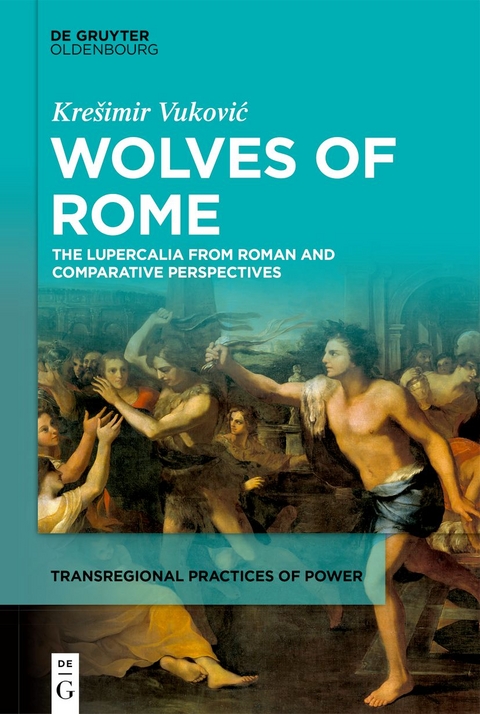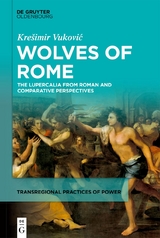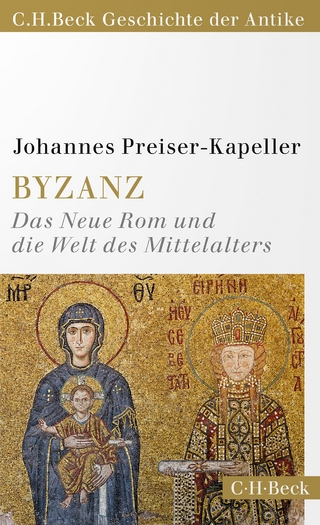Wolves of Rome
The Lupercalia from Roman and Comparative Perspectives
Seiten
2022
De Gruyter Oldenbourg (Verlag)
978-3-11-068934-1 (ISBN)
De Gruyter Oldenbourg (Verlag)
978-3-11-068934-1 (ISBN)
The books published in this series place particular emphasis on the transregional – transimperial, transnational, transcultural – and the transtemporal orientation of political concepts and practices of power, with a special focus on idioms of rulership, political normativity and order, as well as subversion and rebellion against such regimes.
The Roman foundation myth has been the subject of classical scholarship for centuries. But much in the story of Romulus and Remus remains unexplained. This is the first English language book-length study of the Lupercalia, a religious festival central to understanding both the Roman foundation myth and the history of Rome. The festival of the Lupercalia was a male initiation ritual and shares a number of traits with similar rituals across the world. The agonistic elements in the story of Romulus and Remus and the Lupercalia can be compared to a number of Vedic rituals and traced back to a common Indo-European prehistory. The Lupercalia celebration remained a central annual event throughout the history of Rome and reflected political and social life in the city. Caesar used it to stage a refusal of kingship and Augustus restored its initiatory aspect, which continued in the period of the Empire. It survived all attempts of Christian prohibition to appear in the form of a carnival that criticized the pope in the late 5th century. In sum, the book offers a new interpretation of the Roman foundation myth and the Lupercalia. It follows the transformation of a unique ritual from its Indo-European roots through Roman history to late antiquity.
The Roman foundation myth has been the subject of classical scholarship for centuries. But much in the story of Romulus and Remus remains unexplained. This is the first English language book-length study of the Lupercalia, a religious festival central to understanding both the Roman foundation myth and the history of Rome. The festival of the Lupercalia was a male initiation ritual and shares a number of traits with similar rituals across the world. The agonistic elements in the story of Romulus and Remus and the Lupercalia can be compared to a number of Vedic rituals and traced back to a common Indo-European prehistory. The Lupercalia celebration remained a central annual event throughout the history of Rome and reflected political and social life in the city. Caesar used it to stage a refusal of kingship and Augustus restored its initiatory aspect, which continued in the period of the Empire. It survived all attempts of Christian prohibition to appear in the form of a carnival that criticized the pope in the late 5th century. In sum, the book offers a new interpretation of the Roman foundation myth and the Lupercalia. It follows the transformation of a unique ritual from its Indo-European roots through Roman history to late antiquity.
Kresimir Vukovic, Ludwig Maximilian University of Munich, Germany.
| Erscheinungsdatum | 23.11.2022 |
|---|---|
| Reihe/Serie | Transregional Practices of Power ; 2 |
| Zusatzinfo | 3 b/w and 2 col. ill., 5 b/w tbl. |
| Verlagsort | Basel/Berlin/Boston |
| Sprache | englisch |
| Maße | 155 x 230 mm |
| Gewicht | 594 g |
| Themenwelt | Geschichte ► Allgemeine Geschichte ► Altertum / Antike |
| Schlagworte | Altertum • Antiquity • lupercalia • Mythologie • Mythology • Rom • Rome |
| ISBN-10 | 3-11-068934-0 / 3110689340 |
| ISBN-13 | 978-3-11-068934-1 / 9783110689341 |
| Zustand | Neuware |
| Informationen gemäß Produktsicherheitsverordnung (GPSR) | |
| Haben Sie eine Frage zum Produkt? |
Mehr entdecken
aus dem Bereich
aus dem Bereich
Krieg und Frieden im Goldenen Zeitalter Roms
Buch | Hardcover (2024)
Klett-Cotta (Verlag)
32,00 €




